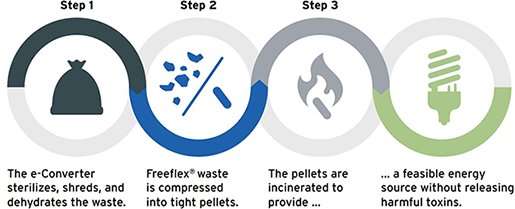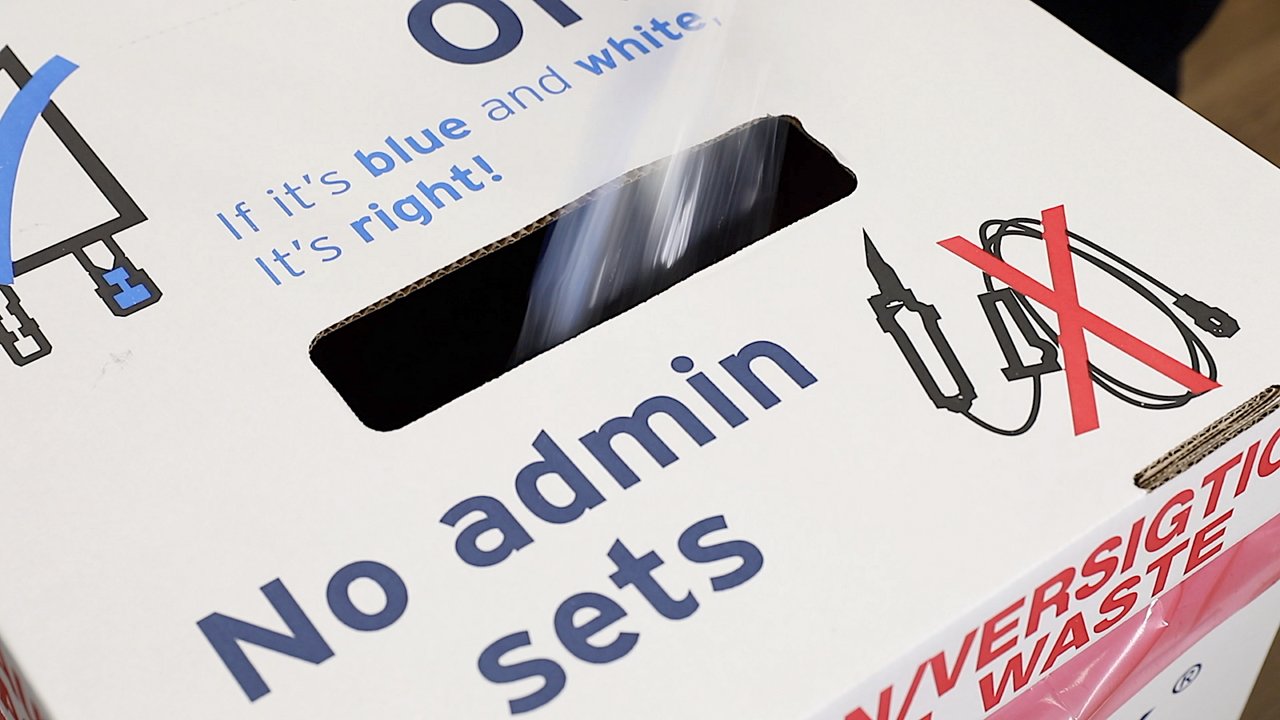Joining Forces to Fight Pollution
Supporting waste collection right at the source
As a starting point, Fresenius Kabi began to look at the life cycle of its Freeflex IV infusion container that is used for intravenously administered drugs. Millions of these containers are used in South African hospitals each year in patient care and need to be disposed of responsibly. To treat the waste according to the latest environmental standards, it has to be separated from other hospital waste and reclaimed properly.
In order to ensure this proper collection, Fresenius Kabi South Africa provided its pilot project hospitals with dedicated Freeflex bins: with the right infrastructure in place to separate and collect the infusion containers, it was easier for the healthcare staff to take care of these tasks during their demanding work and care for patients. The bins were a huge success. Since the project's launch in 2018, 177 tons of Freeflex waste have been collected. Having started with 2 hospitals in the initial pilot project, currently 46 hospitals are participating.
The e-Converter process transforms waste into energy
The e-Converter sterilizes, shreds, and dehydrates the material to reduce its weight and volume. When implementing the next phases of the process, the waste is compressed into tight pellets, which can be incinerated and used to generate energy. Testing is ongoing to ensure that the incineration process does not release any toxic emissions and that all aspects of the project comply with environmental legislation. Currently, waste is still disposed to landfills, however, due to the unique e-Converter process, the waste to landfill has been reduced by 80% in volume. The aim is to divert this waste from landfill to a refuse derived fuel by the beginning of 2023.
Solving two problems at once
The pilot project of Fresenius Kabi in South Africa shows how hospital waste can be disposed of in a smart, compliant way and, at the same time, serve as an energy source. Thanks to the great success of the project, Fresenius Kabi is currently in discussion with the authorities as well as other hospitals and stakeholders to roll out this waste management concept across the South African private healthcare sector. Until the end of 2022 additional 45 hospitals are planned to join the project – a positive outlook into the future.
 After completing step 1 of the modern e-Converter solution as illustrated, Fresenius Kabi will be able to halve the weight of its infusion container waste and reduce its volume by up to 80 percent. Steps 2 and 3 will result in zero waste to landfill.
After completing step 1 of the modern e-Converter solution as illustrated, Fresenius Kabi will be able to halve the weight of its infusion container waste and reduce its volume by up to 80 percent. Steps 2 and 3 will result in zero waste to landfill.

